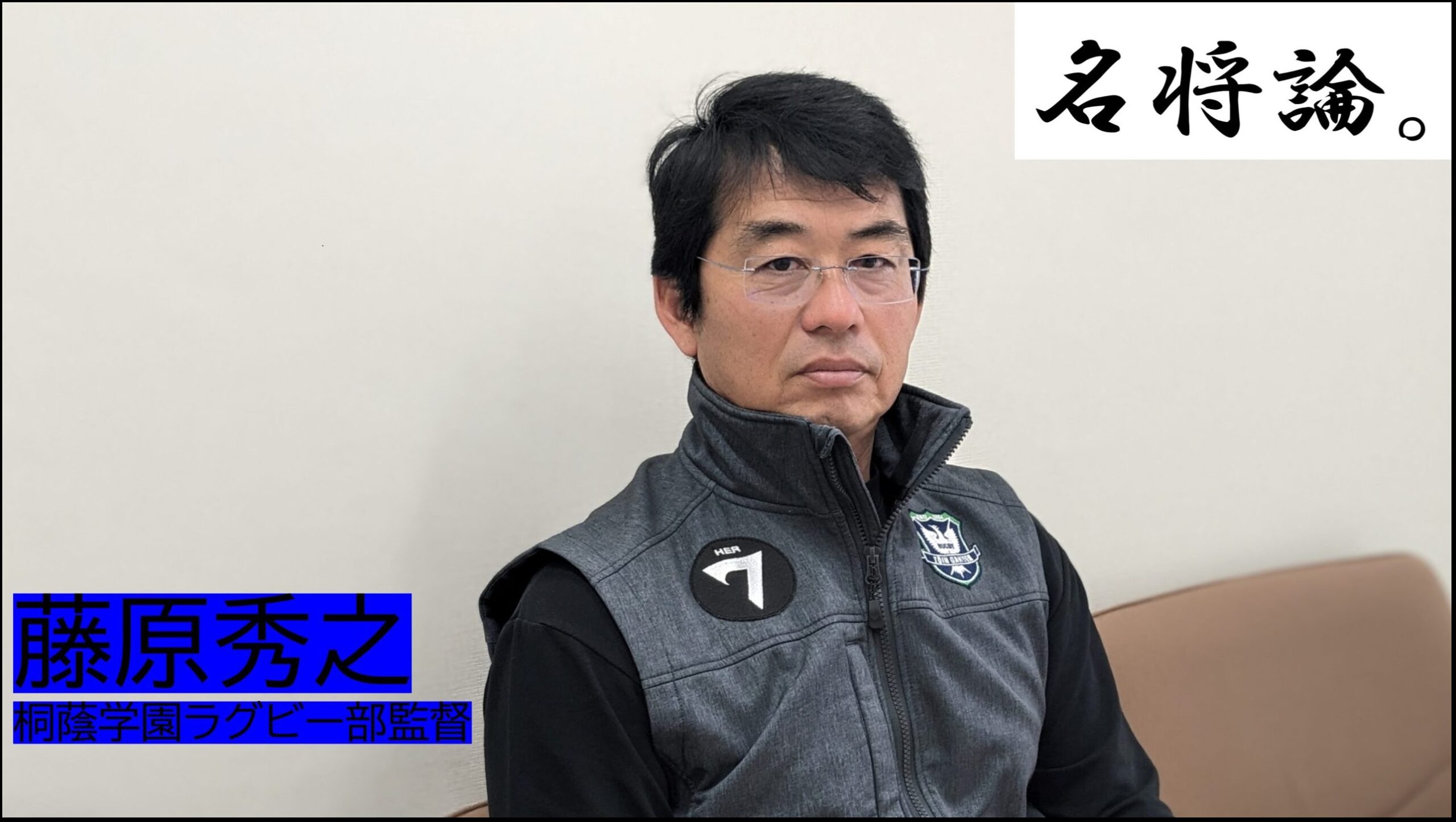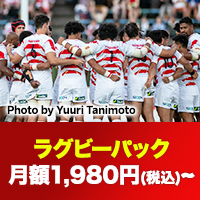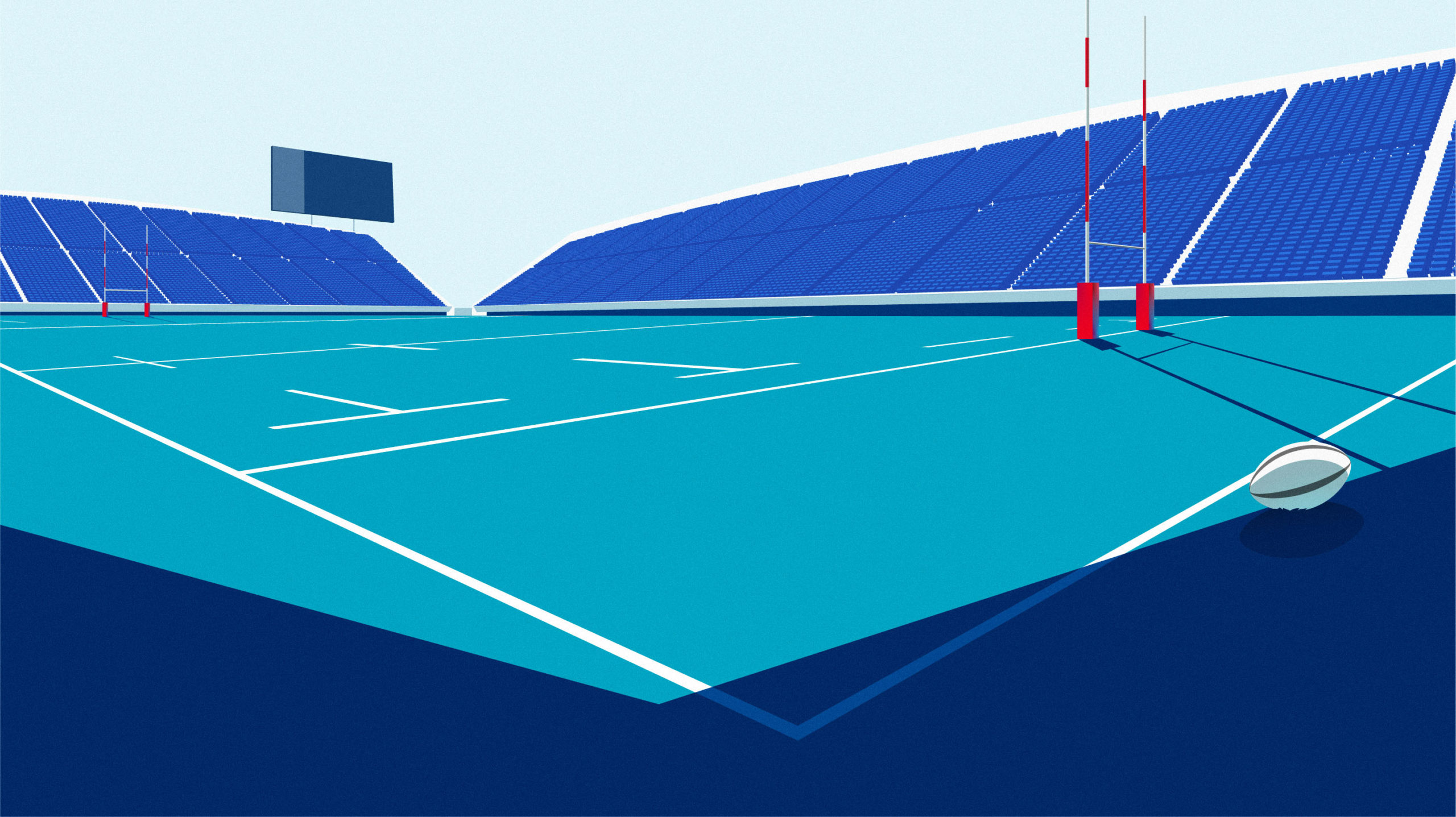"Can You Really Do It 10 Out of 10 Times?" Coach Fujiwara's Challenge. What Elevated Toin Gakuen to New Heights After 3 National Championships in 5 Years
Toin Gakuen, nicknamed the "Eastern Yokozuna" of high school rugby with three national championships at the winter Hanazono tournament in the past five years, shows no signs of slowing down. In the second installment of "Theory of Great Coaches," we interviewed Head Coach Hideyuki Fujiwara, who has been leading the school's program for about 30 years, including his time as an assistant coach. LEAD Rugby delves into what drove their recent success and the philosophy of this master coach who has sent numerous alumni to League One and the Japan national team.
The Mental Approach That Elevated Toin
Coach Fujiwara has always sought "what's best for the students."
Behind their recent success, it was revealed that there was a powerful tool - sports psychology - and one key figure.
"Currently, we have Dr. Tsutomu Fuse supporting our mental training. Dr. Fuse earned his doctorate in applied sports psychology in the United States and has experience coaching Olympic and Paralympic athletes. He's a rare individual who can effectively apply his knowledge to the field. After experiencing his sessions firsthand and seeing the remarkable impact he could have - something we couldn't achieve on our own - we decided to bring him on board."

Image: "Toin Gakuen Rugby Club: Victory Meetings"
Dr. Fuse's guidance began in earnest with the team led by Captain Naoto Saito (now with Suntory Sungoliath) after Toin Gakuen's 10-year prefectural championship streak was halted by Keio in the 2014 Hanazono preliminaries. Although the team wasn't particularly blessed with talent that year, they went on to achieve their third national runner-up finish at the winter Hanazono tournament.
Before this, there had been a gap between Coach Fujiwara's expectations of how the team would perform in summer and autumn and their actual growth.
High school students naturally experience significant mental ups and downs. With the introduction of applied sports psychology, these fluctuations became less extreme, allowing the team to better time their peak performance from summer and autumn through to winter.
"Can You Really Do It 10 Out of 10 Times?"
Among the concrete changes Dr. Fuse brought were player-led meetings and the concept of "double goals" - setting both maximum and minimum objectives.
"For our highest goal, we establish a fundamental prerequisite - 'something we can achieve 10 out of 10 times.' This doesn't need to be a spectacular play. For instance, if making a game-changing tackle is the ultimate goal, the prerequisite might be maintaining visual focus, proper defensive positioning, or quick alignment."
The key point is that players must think through these goals themselves.
"If goals are simply handed down, there's no buy-in, and players end up just waiting for instructions. That won't help them succeed not only in matches but also in society. My role is to verify these goals and challenge them. I ask, 'Can you really do this 10 out of 10 times?' Now, the environment has evolved to where players naturally critique each other without my prompting."
This approach has led to a significant change: "Players now have clarity about what needs to be done, eliminating unnecessary mental distractions."
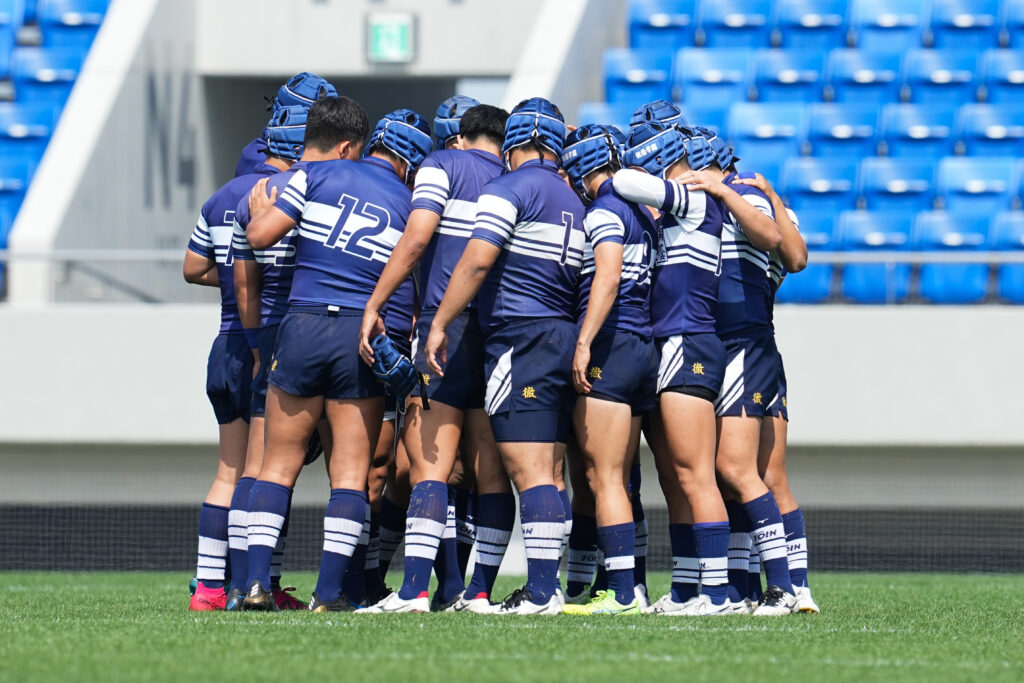
Photo: AFLO
Watching Toin Gakuen's matches, it's impressive how they maintain their composure and return to fundamental plays even when under pressure. While Coach Fujiwara acknowledges that "players naturally feel nervous on big stages," their mental composure was evident in their recent Hanazono final, where they withstood Higashi Fukuoka's late surge without conceding penalties.
Actively Extending Their Reach Beyond Rugby
Of course, Toin Gakuen's strength isn't just mental.
Their individual ball-carrying power is particularly notable. What kind of physical training do they employ?
"Rather than simply building bigger bodies, we focus on training that balances practical endurance and flexibility with strength. We incorporate gymnastic approaches to help restore the natural range of motion that humans inherently possess. Currently, we have three specialized physical coaches, and we're also fortunate to have Kazushi Tezuka, a movement analysis expert, assisting us as a performance coordinator."
Here again, we see the presence of exceptional external specialists. Coach Fujiwara, believing that "the rugby world alone is too narrow," actively looks beyond rugby and outside the school. He makes it a point to meet with and learn from interesting individuals, often participating in their sessions.
One senses that Coach Fujiwara's excellence as a leader stems from this strong intellectual curiosity and broad perspective.
Additionally, Toin Gakuen itself seems to have an openness to incorporating outside expertise. Both Coach Fujiwara and his long-time partner Coach Toshiya Kaneko are graduates of Tokyo high schools and not alumni of Toin. "The absence of old guard figures, for better or worse, might have been significant," Fujiwara reflects.
The Breakthrough Came with Their First Hanazono Final Appearance
Looking further back in time, when did Coach Fujiwara feel his first breakthrough moment?
It was when they reached their first Hanazono final and finished as runners-up in the 2005 season. His eyes soften as he says, "The players pulled us up to that level."
"That was the team captained by scrum-half Tomohiro Sakurai (who later played for NEC Green Rockets and others). Sakurai's presence was immense. His consistency, selfless play, and mental strength were extraordinary - almost abnormally so. I don't think I'll ever encounter another player quite like him. Coming from Oita Prefecture as a high school entrant, he elevated the team by pushing our internal students to their limits."
Their success changed how other schools viewed them.
"After Hanazono, during the Sanix World Youth tournament in Golden Week, Coach Nogami from Osaka Kogyo High and Coach Takasaki from Fushimi Technical approached me. It was the first time Coach Nogami had initiated contact, saying 'You've figured out how to win, haven't you?' Coach Takasaki suggested we have practice matches. Reaching the Hanazono final and gaining recognition from these traditional powerhouse coaches gave me confidence in our approach. But it also showed me we still needed more to achieve victory."
Creating Space in the Season by Working Backward from Hanazono Victory
Hanazono presents unique challenges, from managing players' mental state and short-term tournament matches to what Coach Fujiwara describes as "playing 99.9% away games when facing Kansai teams in the finals." There's a specific path and method to winning there.

Photo: PIXTA
Now, they sometimes deliberately create flexibility in their season schedule to achieve their ultimate goal of winning the Hanazono final. He explains using last year's team as an example.
"We didn't participate in the Sanix World Youth qualifying tournament because we could potentially qualify by winning the Kanto Rookie Tournament. While we would have liked to participate, since we couldn't, we deliberately avoided giving the team specific challenges at that time. I felt it was time to let the players navigate the ship themselves. They struggled in the Kanto Tournament, and their setback in the National Sports Festival actually helped tighten up the team, making it easier to enter the national tournament qualifiers."
Coaches Should Have More "Flexibility"
Next, we asked for his thoughts on high school rugby. High school rugby participation has declined by 40% over the past 20 years. What hints might there be to halt this decline?
He suggests that "simpler forms of rugby that can be played with just one ball should be more widely promoted," and then discusses the need for systems that allow sharing talent with other sports.
"There's plenty of talented athletes in other sports. Soccer has such a large player base - if even half of them also played rugby, our competitive level would increase significantly. While this might be challenging given Japan's cultural context, we might need to develop something like a seasonal sports system. Also, I often hear about cases where students quit sports they played in elementary school during middle or high school due to burnout from excessive focus on winning. If we could provide various options, and rugby was among them..."
He also points out that other schools' coaching methods "lack flexibility."
"Recently, I've noticed cases where alumni now playing in League One directly implement their professional team's training methods. But those practices are designed for players who are already capable - for high school students, both the intensity and teaching method need to be adjusted down several levels. As opponents, these teams become easier to exploit because we can recognize they're using League One systems."
"Flexibility" is another key word in understanding Coach Fujiwara's coaching philosophy. Returning to Toin Gakuen, he's demanding this quality from his new team.
"The methods that brought success in the previous year are the most dangerous. I tell the students that those weren't your achievements - question them. This applies to how we conduct meetings too. I'm thinking of breaking down the meeting structure for the new team. I'm about to tell them soon: 'This approach isn't good enough.'"
He says with a grin. At the end, we caught a glimpse of the master coach's stern side.
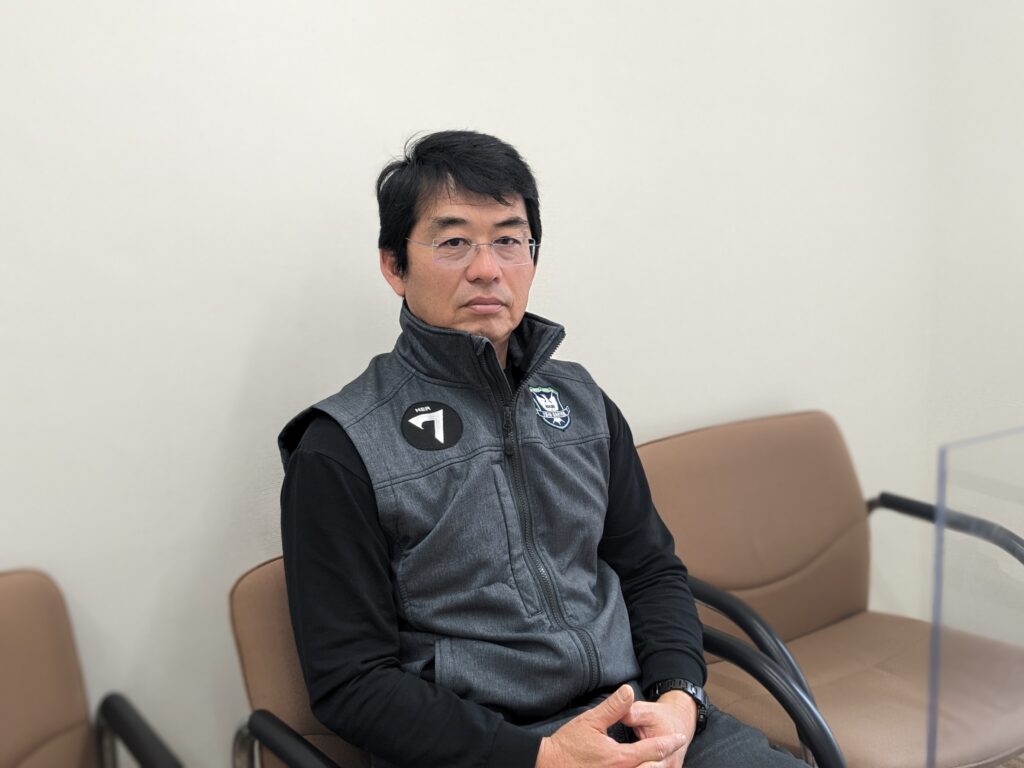
Photo: Editorial Department
Interview/Text: Toru Takebayashi (LEAD Rugby)

